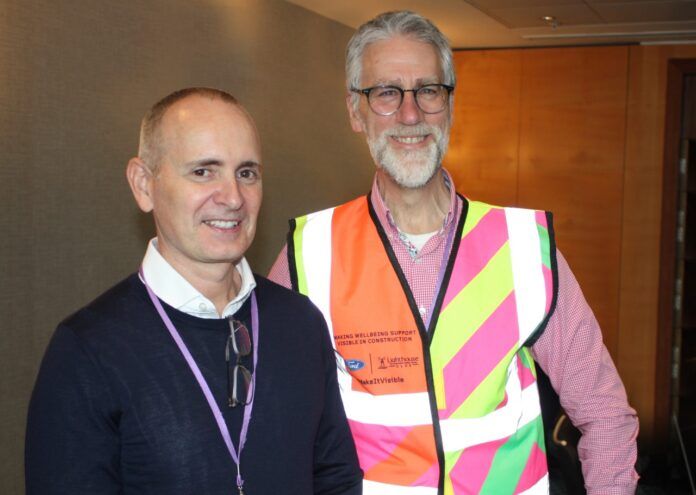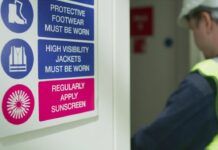More than 150 people from across the construction industry have volunteered to help a national drive to stop suicide and improve the welfare and wellbeing of the workforce in the Make it Visible initiative.
The initiative was officially launched earlier this year and has seen contractors, clients, professional bodies come together to try to tackle the industry’s poor record on mental health.
Coordinated by the heads of Lighthouse Construction Industry Charity and Mates In Mind, the initiative aims to set a deliverable and measurable plan of action for wellbeing that can reach the boots on the ground.
It is also designed to bring together the many different mental health schemes already in existence in construction to make a more coherent cross-company approach.
Among the issues the initiative will be prioritising are: drawing up an industry-wide wellbeing code of practice, issuing industry-wide advice, supporting the on site wellbeing champions already in place and helping to develop people skills training for supervisors and managers.
Obtaining government funding for wellbeing training and initiatives and ensuring mental health provision forms part of procurement are also among its priority issues.
Bill Hill, CEO of the Lighthouse Construction Industry Charity, said: “There are a lot of wellbeing strategies and there is some fantastic best practice, but it can be very difficult getting the industry to work together.
“We have a moral responsibility to improve the welfare of our workforce and it’s great to see that with so many people on board the industry really does want to get behind this.
“We want to leave egos, brands and intellectual property aside so that we can work together and change this moment into a movement to make wellbeing support visible in sight, on every site!”
Members of the Make It Visible taskforce recently heard from Jon Davies, the CEO of the Australian Constructors Association, which has already developed a draft Culture Standard – designed to improve welfare for construction workers in the country.
Davies, originally from Northumberland, believes there are many similarities between the workplace cultures in the two country’s construction industries.
He said: “Historically what we’ve been doing too much on is treating the symptoms. We’ve been picking up the pieces but not addressing the root cause.
“If we look at the commercial models we’ve had in Australia, very similar to the UK, they’ve driven historically very adversarial culture and that is impacting on our people.
“Reducing the long hours that our workers work and providing flexible work options so they can take the time off that they need will have a big impact on the workplace culture too.”




